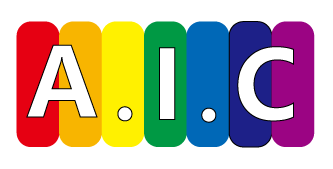In the rapidly evolving world of digital printing, the quest for superior print quality with environmentally sustainable practices is more pressing than ever. A significant breakthrough in this realm is the development of water-based inkjet surface modified organic pigment concentrates. These advanced materials not only promise enhanced performance in inkjet printing but also align with the increasing environmental regulations and consumer demands for greener products.
Introduction to Water-Based Inkjet Inks
Traditionally, solvent-based inks were the mainstay in the printing industry due to their durability and vibrant color output. However, they pose significant environmental risks due to the volatile organic compounds (VOCs) they release into the atmosphere. Water-based inks emerged as a more eco-friendly alternative, incorporating water as the solvent instead of hazardous chemicals. While these inks were initially less vibrant and slower to dry, technological advancements have significantly bridged these gaps.
The Significance of Organic Pigments
Organic pigments are carbon-based molecules known for their bright, vivid colors. These pigments are preferred in various applications, from artistic paints to industrial coatings, due to their color strength and variety. In the context of inkjet inks, organic pigments provide not only the desired chromaticity but also better safety profiles compared to their inorganic counterparts.
Advancements in Surface Modification
The key to enhancing the performance of organic pigments in water-based inkjet inks lies in surface modification. This process involves chemically altering the surface of pigment particles to improve their dispersibility and stability in water. Traditionally, pigments tend to agglomerate or settle, leading to clogging and inconsistent print quality. Surface modification addresses these issues by increasing the compatibility of organic pigments with water-based mediums.
Technology Behind Surface Modified Pigment Concentrates
Surface modification typically involves treating the pigment particles with various agents that anchor onto their surfaces, thereby altering their interaction with the surrounding medium. These agents can be surfactants, polymers, or other functional groups that enhance the pigment’s hydrophilicity (water-friendliness). The result is a pigment concentrate that disperses evenly across the ink formulation, providing uniform color and consistent print quality.
Environmental and Operational Benefits
The shift to water-based inkjet surface modified organic pigment concentrates offers significant environmental benefits. These concentrates reduce VOC emissions, decrease the risk of environmental contamination, and are generally safer for workers in the manufacturing process. Furthermore, the improved stability and dispersibility of these pigments reduce waste associated with nozzle clogging and print defects, enhancing operational efficiency.
Challenges and Future Directions
Despite the advantages, the transition to water-based systems is not without challenges. The drying time of water-based inks is still a concern, particularly in high-speed printing operations. Moreover, the long-term stability of these inks can be impacted by microbial growth due to the organic nature of the materials involved.
Research is ongoing to develop additives and processes that can mitigate these issues. Innovations such as UV-curable water-based inks and the introduction of antimicrobial agents are promising areas that could further enhance the applicability and performance of these pigment concentrates.
Conclusion
Water-based inkjet surface modified organic pigment concentrates represent a transformative advancement in the printing industry. By combining the vibrancy and safety of organic pigments with the environmental benefits of water-based systems, these materials are setting new standards for quality and sustainability. As research continues to overcome existing challenges, the future of printing looks brighter and greener with these innovative solutions.
